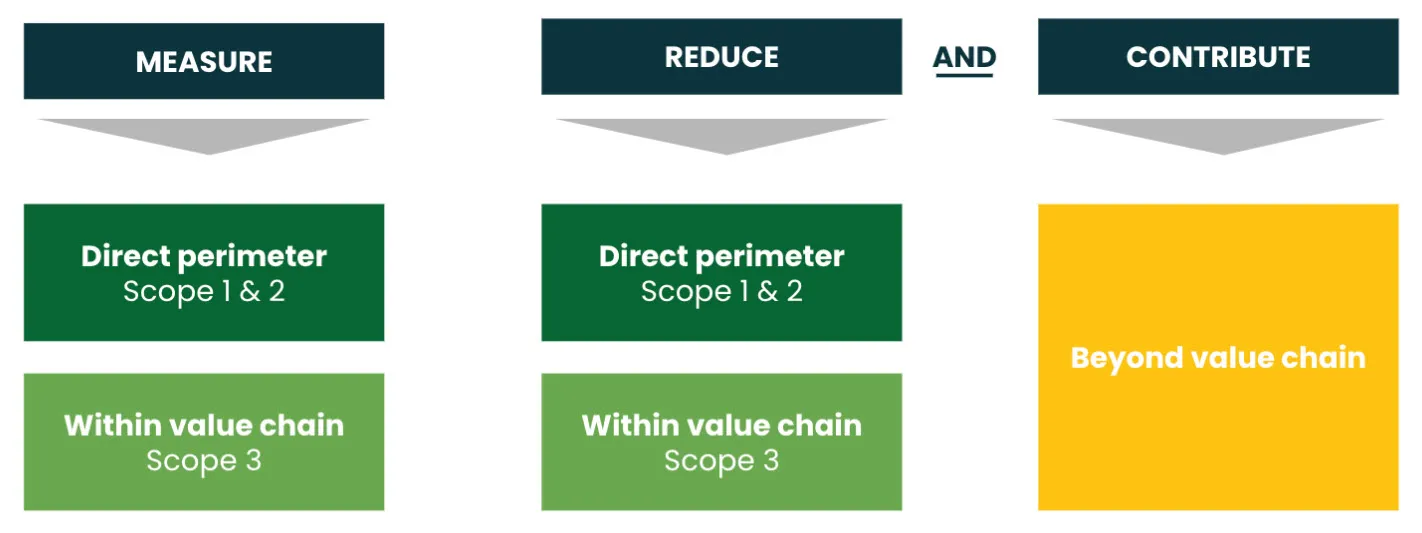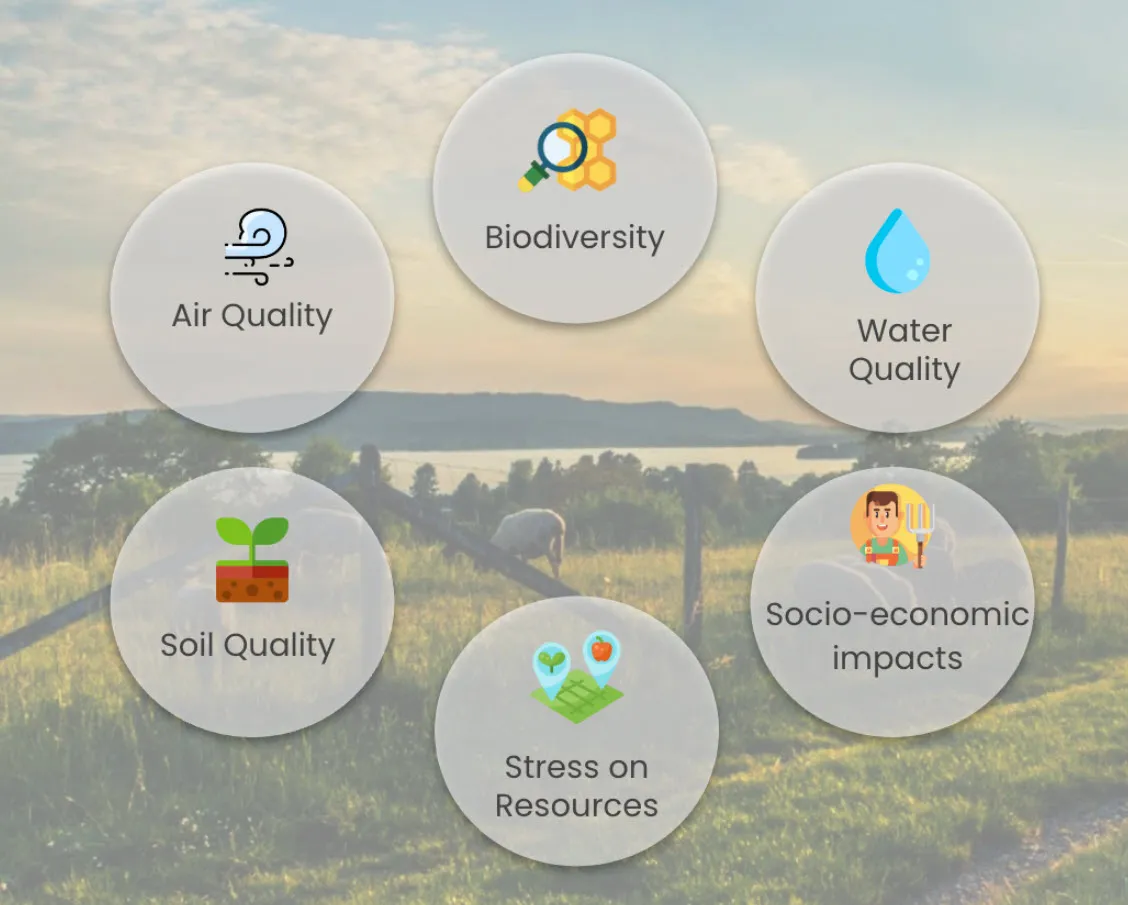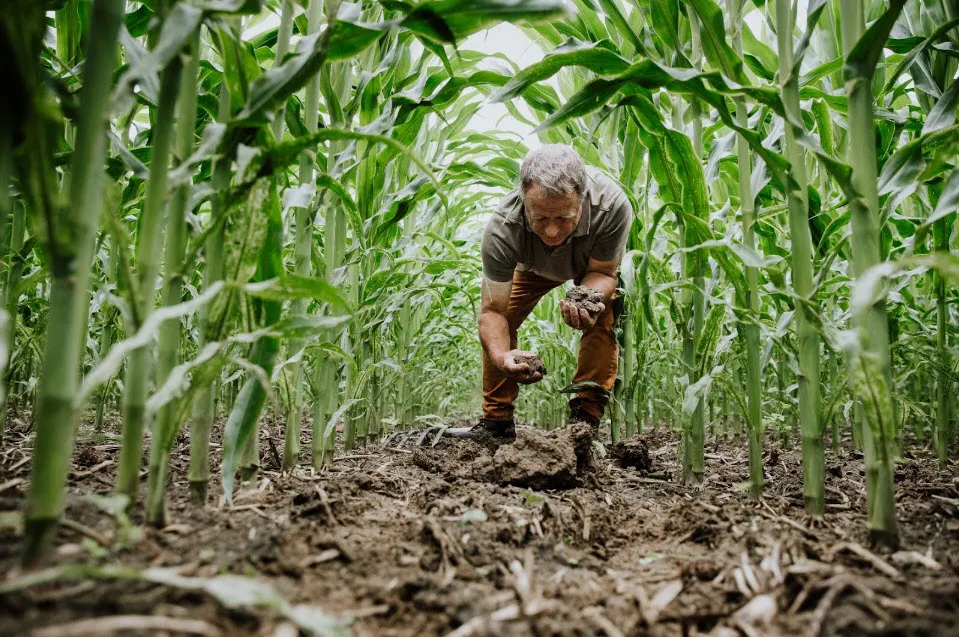





You want to contribute to global net zero but need a better understanding of the voluntary carbon market? Curious about how low-carbon agricultural projects can be part of your corporate climate strategies?
We made sure to compile all you need to know on these burning topics during our webinar on 11th Oct “Contribute to global net zero and restore degraded soils”, done in collaboration with our partne Together, we drive the shift towards regenerative agriculture in Europe.
Here we list some of the key takeaways from our experts’ talk on climate contribution and regenerative agriculture.
The IPCC has made it clear: if we are to prevent global warming from rising above 1.5°C, we must achieve global net zero by 2050. What is made less clear however is that large-scale mitigation solutions already exist to restore our natural carbon sinks. We have the solutions, what we need now is collective action to enact them.
The shift from a compensation to a contribution mindset reminds us that accelerating the net zero transition is also a corporate priority. Unfortunately, companies often act one step at a time by focusing solely on reducing their own emissions before supporting mitigation action outside their value chains.
However, it is every company’s responsibility to reduce their emissions while at the same time contributing to global carbon neutrality by financing carbon reduction and storage projects. While 2050 may seem distant, it is an extremely short time-frame to restore our world’s ecosystems and redirect financial flows toward climate mitigation efforts. But fear not: we help you navigate the shifting climate action landscape and make rapid and effective contributions.


Carbon farming provides a clear-cut example of what a local, effective and high-integrity carbon project looks like in practice. Agriculture is not all about cultivating crops: it is also one of our greatest assets in the fight against climate change. The soil is the world’s first terrestrial carbon stock, with more carbon residing in the soil than in the atmosphere and all of the vegetation combined. Unfortunately, modern industrial agriculture has become a large part of the climate problem by curbing the soil’s natural carbon sequestration capacity, causing high emissions and even desertification.
By restoring soil health, regenerative agriculture can capture carbon while safeguarding long-term farmer productivity, nutrient-rich food, increased biodiversity and restored water cycles. Regenerative agriculture encompasses a series of agroecological practices that restore agroecosystems’ natural fertility and maximise soil’s ecosystem performance.
Despite how much regenerative agriculture has to offer, farmers face a number of barriers to adopting new practices such as a fear of yields and profitability loss, a lack of appropriate knowledge and little market pull for regeneratively grown crops. This is where Soil Capital comes in and fills the financial and knowledge gaps for farmers to smoothly transition to a low-carbon agriculture.

Farmers are the lead actors in a transition to regenerative agriculture and our goal is to support them by valuing their work through our European carbon certification programme.

Carbon is used as a concrete indicator of regenerative agriculture implementation, as it is an excellent proxy for soil health. Each year, the programme certifies farmers’ carbon improvements resulting from their practice changes. Companies then purchase carbon certificates to quantify and rightfully claim the corresponding positive climate impact.
The generated carbon certificates adhere to the carbon market’s strict standards and follow the EU’s upcoming carbon removal certification framework, making sure that purchasing companies can contribute to global net zero in the safest and most impactful way possible.
By connecting pioneering farmers and ambitious companies, Soil Capital’s carbon certification programme unlocks the regenerative transition and accelerates the race to global net zero. After only three years, more than 1,000 farmers have been enrolled in the programme, 270,000 ha of farmland in Europe are being managed with regenerative practices and 150,000 tonnes of carbon have been reduced or removed thanks to companies’ essential financial support.
You can be part of this incredible and inspiring change. Take the next step on your sustainability journey with us and let’s make sure your contribution is as meaningful, impactful and close to you as possible!

Watch our webinar:


You want to contribute to global net zero but need a better understanding of the voluntary carbon market? Curious about how low-carbon agricultural projects can be part of your corporate climate strategies?
We made sure to compile all you need to know on these burning topics during our webinar on 11th Oct “Contribute to global net zero and restore degraded soils”, done in collaboration with our partne Together, we drive the shift towards regenerative agriculture in Europe.
Here we list some of the key takeaways from our experts’ talk on climate contribution and regenerative agriculture.
The IPCC has made it clear: if we are to prevent global warming from rising above 1.5°C, we must achieve global net zero by 2050. What is made less clear however is that large-scale mitigation solutions already exist to restore our natural carbon sinks. We have the solutions, what we need now is collective action to enact them.
The shift from a compensation to a contribution mindset reminds us that accelerating the net zero transition is also a corporate priority. Unfortunately, companies often act one step at a time by focusing solely on reducing their own emissions before supporting mitigation action outside their value chains.
However, it is every company’s responsibility to reduce their emissions while at the same time contributing to global carbon neutrality by financing carbon reduction and storage projects. While 2050 may seem distant, it is an extremely short time-frame to restore our world’s ecosystems and redirect financial flows toward climate mitigation efforts. But fear not: we help you navigate the shifting climate action landscape and make rapid and effective contributions.


Carbon farming provides a clear-cut example of what a local, effective and high-integrity carbon project looks like in practice. Agriculture is not all about cultivating crops: it is also one of our greatest assets in the fight against climate change. The soil is the world’s first terrestrial carbon stock, with more carbon residing in the soil than in the atmosphere and all of the vegetation combined. Unfortunately, modern industrial agriculture has become a large part of the climate problem by curbing the soil’s natural carbon sequestration capacity, causing high emissions and even desertification.
By restoring soil health, regenerative agriculture can capture carbon while safeguarding long-term farmer productivity, nutrient-rich food, increased biodiversity and restored water cycles. Regenerative agriculture encompasses a series of agroecological practices that restore agroecosystems’ natural fertility and maximise soil’s ecosystem performance.
Despite how much regenerative agriculture has to offer, farmers face a number of barriers to adopting new practices such as a fear of yields and profitability loss, a lack of appropriate knowledge and little market pull for regeneratively grown crops. This is where Soil Capital comes in and fills the financial and knowledge gaps for farmers to smoothly transition to a low-carbon agriculture.

Farmers are the lead actors in a transition to regenerative agriculture and our goal is to support them by valuing their work through our European carbon certification programme.

Carbon is used as a concrete indicator of regenerative agriculture implementation, as it is an excellent proxy for soil health. Each year, the programme certifies farmers’ carbon improvements resulting from their practice changes. Companies then purchase carbon certificates to quantify and rightfully claim the corresponding positive climate impact.
The generated carbon certificates adhere to the carbon market’s strict standards and follow the EU’s upcoming carbon removal certification framework, making sure that purchasing companies can contribute to global net zero in the safest and most impactful way possible.
By connecting pioneering farmers and ambitious companies, Soil Capital’s carbon certification programme unlocks the regenerative transition and accelerates the race to global net zero. After only three years, more than 1,000 farmers have been enrolled in the programme, 270,000 ha of farmland in Europe are being managed with regenerative practices and 150,000 tonnes of carbon have been reduced or removed thanks to companies’ essential financial support.
You can be part of this incredible and inspiring change. Take the next step on your sustainability journey with us and let’s make sure your contribution is as meaningful, impactful and close to you as possible!

Watch our webinar:
